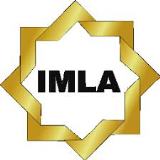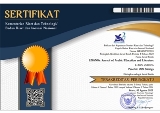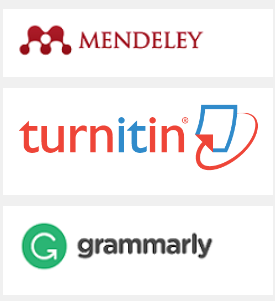Needs Analysis for Developing HOTS Sharf Awwal Questions Using a Web-Based LMS
DOI:
https://doi.org/10.18326/lisania.v9i1.129-151Keywords:
Sharf Lessons, LMS Website, HOTS learningAbstract
The direction of learning targets in the modern era is not only at the level of understanding but also at the level of implementing, analyzing, producing, and evaluating, even to the ability to utilize technology such as websites. Sharf lessons are complex lessons. Very few quality questions are found, and educators still use the Lower Order Thinking Skill (LOTS) level, which sometimes causes them to forget that the target of mastering Sharf science is actually to master Arabic. This study aims to produce questions for the evaluation of Sharf Awwal High Order Thinking Skill (HOTS) learning through the Learning Management System (LMS) website. This study is still in the initial research stage using descriptive qualitative methods. The data collection process uses documentation, interviews, and questionnaires. The results show that developing Sharf Awwal HOTS questions using the website must be based on related materials. In addition, the questions that are compiled must lead to practice in producing descriptive and narrative texts, analyzing texts from sources such as the text of the Qur'an, Alhadith, Arabic news, poetry, to the production of dialogue or communicative texts.
References
Y., Sihotang, N. (2023). Interactive and Participatory Methods to Improve Learning Outcomes of Nahwu-Sharf. KnE Social Sciences.
Adesoji, F.A., (2018). Bloom's Taxonomy Of Educational Objectives And The Modification Of Cognitive Levels. Adv Soc Sci Res J 5.
Alfarisy et al. (2023). Constructing Arabic Grammar Test Items Involving Higher-Order Thinking Skills: The Obstacles Against the Teachers. Journal of Higher Education Theory and Practice 23, 147–154.
Almahasees, Z. et al. (2021). Faculty’s and Students’ Perceptions of Online Learning During COVID-19. Front Educ (Lausanne) 6.
Anderson, L.W. & David, R. (2015). Kerangka Landasan untuk Pembelajaran, Pengajaran dan Asessmen (Terjemahan). Pustaka Pelajar, Yogyakarta.
Auliya, H. & Anwar, N. (2024). Learning Nahwu and Sharaf via WhatsApp at the Islamic and Arabic Learning Foundation (BISA) Depok.
Busyro, M. (2016). Shorof Praktis “Metode Krapyak.” Menara Kudus., Jogjakarta.
Chung, E. et al. (2020). Online learning readiness among university students in Malaysia amidst COVID-19. Asian Journal of University Education 16, 45–58.
Dinni, H.N. (2018). HOTS (High Order Thinking Skills) dan kaitannya dengan kemampuan literasi matematika. PRISMA, Prosiding Seminar Nasional Matematika.
Faizmailiatus Sofa et al. (2022). Can Mentimeter Become an Innovative Media in Sharf Learning? Studi Arab 13, 51–61.
Hamid, M.F.A. et al. (2020). An insight into needs analysis towards the development of an animated infographic module in Arabic grammar learning. Journal of Language and Linguistic Studies 16, 1387–1401.
Izzuddin et al. (2020). The Curriculum Development of Arabic Instruction to Improve Students’ Writing Skills. Universal Journal of Educational Research 4261–4272.
Lemay, D.J. et al. (2021). Transition to online learning during the COVID-19 pandemic. Computers in Human Behavior Reports 4.
Liu, M. & Yu, D. (2023). Towards intelligent E-learning systems. Educ Inf Technol (Dordr) 28, 7845–7876.
Maulana, R. (2022). Analisis Capaian Pembelajaran Bahasa Arab dengan Taksonomi Bloom Revisi. Jurnal PTK dan Pendidikan 8.
Munip, A., 2020. Tantangan dan Prospek Studi Bahasa Arab di Indonesia. al Mahāra: Jurnal Pendidikan Bahasa Arab 5, 303–318.
Nujaima, I., Kurniawan, H., 2024. The Role of Nahwu and Sharf Sciences in Arabic Language Learning. Jurnal Al-Hibru 1, 14–23.
Park, S. & Kim, S. (2021). Is sustainable online learning possible with gamification?—The effect of gamified online learning on student learning. Sustainability (Switzerland) 13.
Rahmi Nur Fauziah, I. et al. (2020). Analisis Kualitas Tes Bahasa Arab Berbasis Higher Order Thinking Skill (HOTS). لسـانـنـا (Lisanuna): Jurnal Ilmu Bahasa Arab dan Pembelajarannya 10, 45.
Raswan, R. et al. (2022). Simplifikasi Morfologi Arab (Sharf) Dengan Pendekatan Konstruktivisme Dan Analogi. Arabi : Journal of Arabic Studies 7, 25–37.
Rukmini, E. et al. (2023). Indonesia's higher education system’s online learning during the pandemic. International Journal of Evaluation and Research in Education 12, 2286–2301.
Shidiq, A.S., Masykuri, M., Susanti, E., 2015. Analisis Higher Order Thinking Skills (HOTS) Menggunakan Instrumen Two-Tier Multiple Choice Pada Materi Kelarutan Dan Hasil Kali Kelarutan Untuk Siswa Kelas Xi Sma N 1 Surakarta. Prosiding Seminar Nasional Pendidikan Sains.
Siddiq, M.S. et al. (2020). Penggunaan Aplikasi Latih Faham Sebagai Media Pembelajaran Tashrif Lughowiydalam Pembelajaran Bahasa Arab. Prosiding Semnasbama IV UMJilid 2.
Sofyan, S. (2020). Sejarah Perkembangan Bahasa Arab dan Lembaga Islam di Indonesia. Insan Cita 5, 73–88.
Syarifaturrahmatullah, Ihsan et al. (2023). Analisis Faktor Kesulitan Belajar Ilmu Nahwu dan Sharaf. IJM: Indonesian Journal of Multidisciplinary 1, 1549–1563.
Taufiq, W. (2016). Teori Asal-Usul Bahasa Dalam Literatur Islam Klasik (Sebuah Prespektif Ontologis serta Implikasi Hermenetis terhadap Kitab Suci). Al-Tsaqafa: Jurnal Ilmiah Peradaban Islam 16, 145–158.
Wang, Y. et al. (2023). The moderating effect of participation in online learning activities and perceived importance of online learning on EFL teachers’ teaching ability. Heliyon 9.
Yuliandini, N. et al. (2019). Pengembangan Soal Tes Berbasis Higher Order Thinking Skill (Hots) Taksonomi Bloom Revisi di Sekolah Dasar. Pedadidaktika: Jurnal Ilmiah Pendidikan Guru Sekolah Dasar 6.
Zaini, M.A. (2015). Ilmu Shorof untuk Madrasah Tsanawiyah Al-Futuhiyyah. Rencana Induk Penelitian Universitas Negeri Jakarta, Jakarta.
Zakiatunnisa et al. (2020). Problematika Pembelajaran Bahasa Arab dan Solusinya Bagi Non-Arab. Prosiding Semnasbana IV UM Jilid 2 4.
Zurqoni, Z. et al (2020). Has Arabic Language Learning Been Successfully Implemented? International Journal of Instruction 13, 715–730.
Downloads
Published
Issue
Section
License
Copyright (c) 2025 Muhammad Kamal bin Abdul Hakim, Shafruddin Tajuddin, Khambali

This work is licensed under a Creative Commons Attribution-NonCommercial-ShareAlike 4.0 International License.






